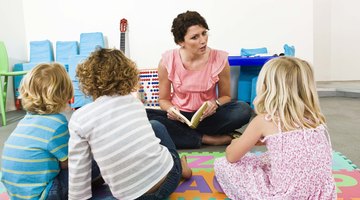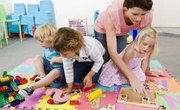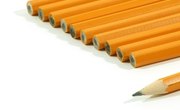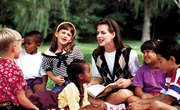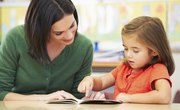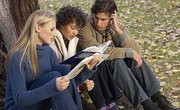A degree in early childhood education can prepare you to teach preschool and primary school, or can serve as a launching pad into a graduate degree in education. Every school establishes its own curriculum for the major, so your classes will vary depending upon the school you choose, but you can expect a strong focus on education and child development.
Core Classes
As with other majors, you'll have to take core classes designed to give you a well-rounded general educational background. These classes will include courses in English, math, science, history and the social sciences. You may be allowed to select from a list of electives to fulfill some requirements, so choosing courses related to your major can help further your education. For example, you might choose a course in developmental psychology for a social science elective.
Child Development
You'll take a wide variety of courses in child development as part of your major. At Taft College, for example, students take courses in child health and safety, elementary nutrition, discipline techniques for preschool children and child assessment and study. These courses help you understand how children grow and develop, and which educational strategies are appropriate for each age group.
Classroom Management
Managing a classroom full of children is a learned skill, and many of your courses are designed to help you manage your students and communicate with their families. At Florida State University, for example, students take courses such as techniques of child study, management and discipline, early childhood curriculum and methods, parents as teachers, observation and participation and educational assessment for children with disabilities.
Subject-Specific Classes
At some schools, you can specialize in a specific sub-field within early childhood education, such as math, science or art. Even if you don't select a specialty, you'll be able to choose from a wide variety of courses that offer teaching methods for various fields. At the College of Charleston, students can take courses such as teaching science, teaching social studies, reading/learning strategies and language and literacy development.
Related Articles
References
Writer Bio
Van Thompson is an attorney and writer. A former martial arts instructor, he holds bachelor's degrees in music and computer science from Westchester University, and a juris doctor from Georgia State University. He is the recipient of numerous writing awards, including a 2009 CALI Legal Writing Award.

